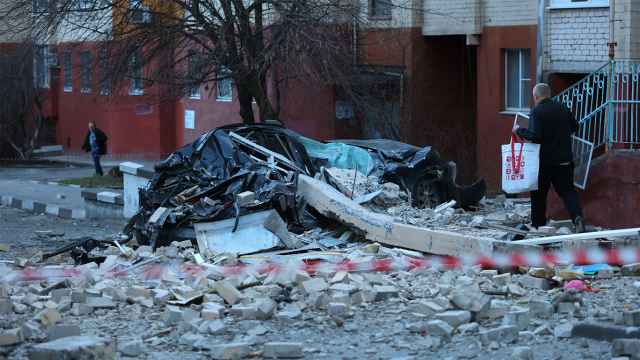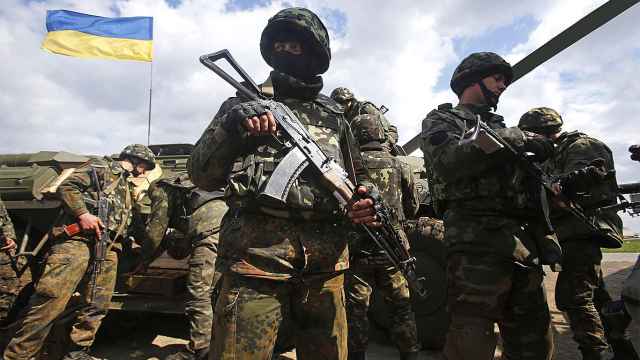London will be expecting throngs of visitors this summer. Not only did it mark Queen Elizabeth's diamond jubilee, but it is also preparing itself for the biggest event on the sporting calendar, the Olympic Games.
Preparation has taken almost seven years, and almost £10 billion ($4.5 billion) has been spent, not only to build new stadiums but also to improve infrastructure and regenerate previously neglected parts of the city. With only nine days to go until the games officially begin, the finishing touches are being added as London awaits the arrival of hundreds of thousands of tourists and, of course, the world's elite.
Yet over recent months, Britain has been getting more than it expected. As the European financial markets have teetered on the brink of collapse over the past 18 months, London has become a financial safe haven for many Europeans. Britain's decision not to join the euro has made the British pound one of the world's most stable currencies.
As European politicians and financiers have struggled to find a long-term solution to the crisis, businesses and depositors have slowly been moving their investments to London. For instance, in 2011 Italian investors spent £408 million ($185 million) in London real estate alone, an increase of more than 120 percent from the previous year.
London is becoming a safe haven not only for financial markets but for a generation of young Europeans looking for work. In April, Spain, the latest country to become embroiled in the financial crisis, announced figures that youth employment exceeded 50 percent Even wealthy French may be tempted to cross the Channel if Socialist President Francois Hollande raises taxes.
Yet only a few years ago, the city was associated with the wealth of Russian political dissidents. Russian billionaires bought up mansions and real estate in some of the city's most sought-after districts. Twenty years after the end of the Cold War, estimates count almost 400,000 Russian expats calling London home. So many, in fact, that the city was jokingly christened Moscow-on-Thames. British newspapers readily run stories regarding the size of Russian billionaires and their yachts.
Famous British institutions have been bought up by wealthy Russians. The Independent and London Evening Standard newspapers were bought by financier Alexander Lebedev, and Chelsea football club was bought in 2003 by Roman Abramovich. Late last year, Abramovich was taken to court in London by another Russian billionaire businessman, Boris Berezovsky, over allegations of breach of trust. And last week, Michael Cherney brought a lawsuit against rival oligarch Oleg Deripaska. The city could easily be the set of a Russian soap opera.
So is this a downward trend and an expectation of things to come? Should Londoners expect fewer influential Russians around Mayfair and Knightsbridge and more Greeks and Italians?
The answer is probably no. Despite this new influx, economists believe the movement of cash from southern Europe is most likely to be a short-term trend. Investment from Moscow and beyond is here for the distance, and it is moving beyond the auction and art houses.
The news that President Vladimir Putin is sending Prime Minister Dmitry Medvedev to the opening of the Olympics perhaps is an indicator of things to come. Relations between the Kremlin and Downing Street have been frosty since the 2006 killing of Alexander Litvinenko, which many believe was committed by Federal Security Service agents on British soil. British Prime Minister David Cameron talked about rebuilding the relationship during his visit to Russia last year, but the re-election of Putin is unlikely to see relations thaw any time soon.
U.S. economists Nouriel Roubini and Ian Bremmer's damning analysis of the Russian economy can only suggest that London may be seeing more Russian emigration and capital flows. Endemic corruption and poor social care make the possibilities of a future in Russia unlikely for many. According to a June VTsIOM survey, 20 percent of Russians are considering emigrating, their likely destinations being the United States, Canada and the European Union.
Yet it is not only a brain drain. Figures from Russia's Central Bank show that capital flight is expected to exceed $80 billion in 2012. These figures apparently accelerated on the news of Putin's re-election.
So why do so many Russians choose London? Despite the fact that Britain's economy is also suffering from the global slowdown, London has managed to retain its AAA rating from international credit agencies. In addition, economic and tax factors are favorable, and immigration laws are slightly looser than they are in other Western financial centers.
What's more, high-net-worth Russians are increasingly branching out beyond London's city limits. The leafy and affluent areas of Surrey and Berkshire, with their mansions, huge gardens and private schools, are now seen as just as attractive as Belgravia and Sloane Square. "Londongrad" is quickly expanding, and Britain will happily take its tax revenue.
During the upcoming Olympic Games, when Yelena Isinbayeva competes for gold in the pole vault, she may be in a foreign city, but she may well have the home-crowd advantage.
Adam Taylor is a media relations associate at Cicero Group in London. The opinions stated in this comment are his own.





